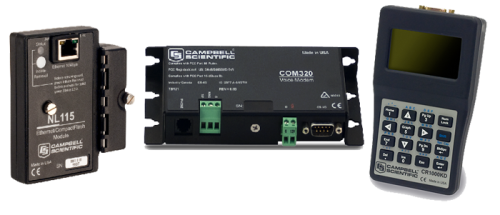
Product Line
Related Documents
Product Brochures
Related FAQs
Number of FAQs related to Communications: 3
Expand AllCollapse All
-
In its simplest form, a server hears requests and delivers answers. In the case of RTMC Web Server, it hears requests from PCs, and it delivers files using Hypertext Transfer Protocol (HTTP), the language of the Internet.
-
Most third-party modems require a null modem cable, SC105, SC110 cable, or SC932A to interface with a datalogger. Many modems manufactured by Campbell Scientific can connect directly to a datalogger’s CS I/O port using an SC12 or serial cable.
-
There are several options:
- Use the SC-USB connector/interface instead of the SC32B.
- Use the SC32B with a pn 17394, USB-to-9-Pin Male RS-232 Cable.
- Use a user-supplied USB interface with the SC32B.
If the datalogger being used has an RS-232 port, only a serial cable is needed. It is not necessary to use the SC32B unless there is another device connected to the RS-232 port or there are concerns about low-level noise from a permanently connected, ac-powered computer.



